KRUGER, SOUTH AFRICA
6 Reasons to Visit Kruger National Park
Of all of Africa’s wonderful and iconic national parks, few carry such elevated reputation as Kruger National Park.
Affectionately dubbed ‘the People’s Park’, it spans some 7,500 square miles (20,000km²), about twice as large as Hawaii’s Big Island, and forms part of the even larger Great Limpopo Transfrontier Park, which encompasses regions of Mozambique and Zimbabwe.
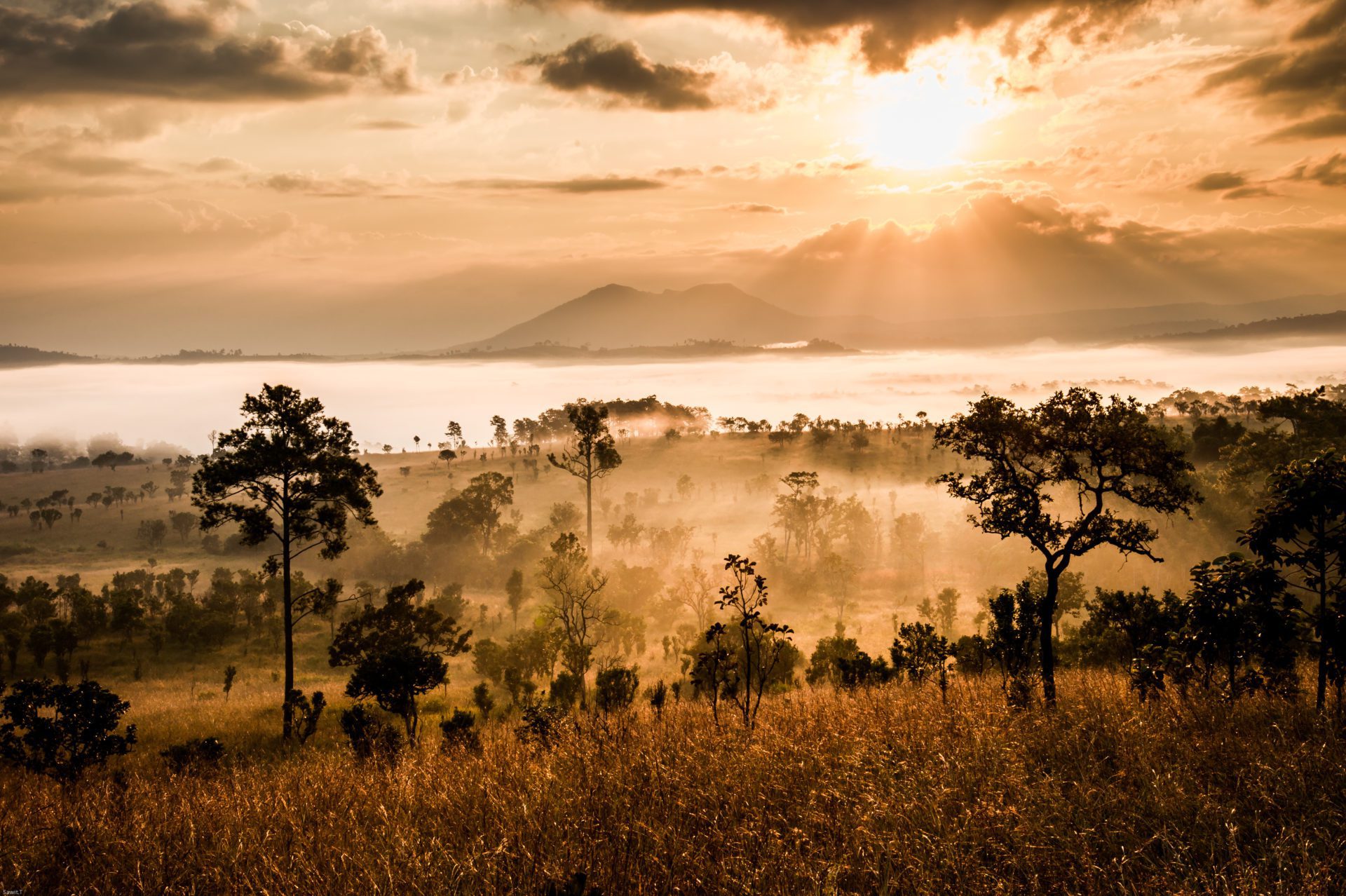
Its size is far from its most impressive asset though, and the park draws in almost one million visitors each year to see a proliferation of wildlife, including the Big 5 – lion, leopard, Cape buffalo, black rhino and elephant – and the Big 6 of African ornithology – lappet-faced vultures, martial eagles, saddle-billed storks, Kori bustards, Pels fishing owl and ground hornbills.
Almost 125 years old, Kruger National Park holds a special place in the hearts of South Africans, conservationists and all who visit, with its diverse landscapes many hundreds of bird and animal species and incredible accommodations.
Despite, or perhaps more appropriately, because of this, we rarely focus our itineraries upon Kruger National Park. With such an inundation of attention and tourism, we often find that Kruger is unable to provide the intimate, personal experience we want for our clients. This is not to say that we actively avoid the Kruger, nor suggest that it isn’t worthy of such reputation. Rather, we prefer to take our guests to the private conservancies located within the park and on its periphery.
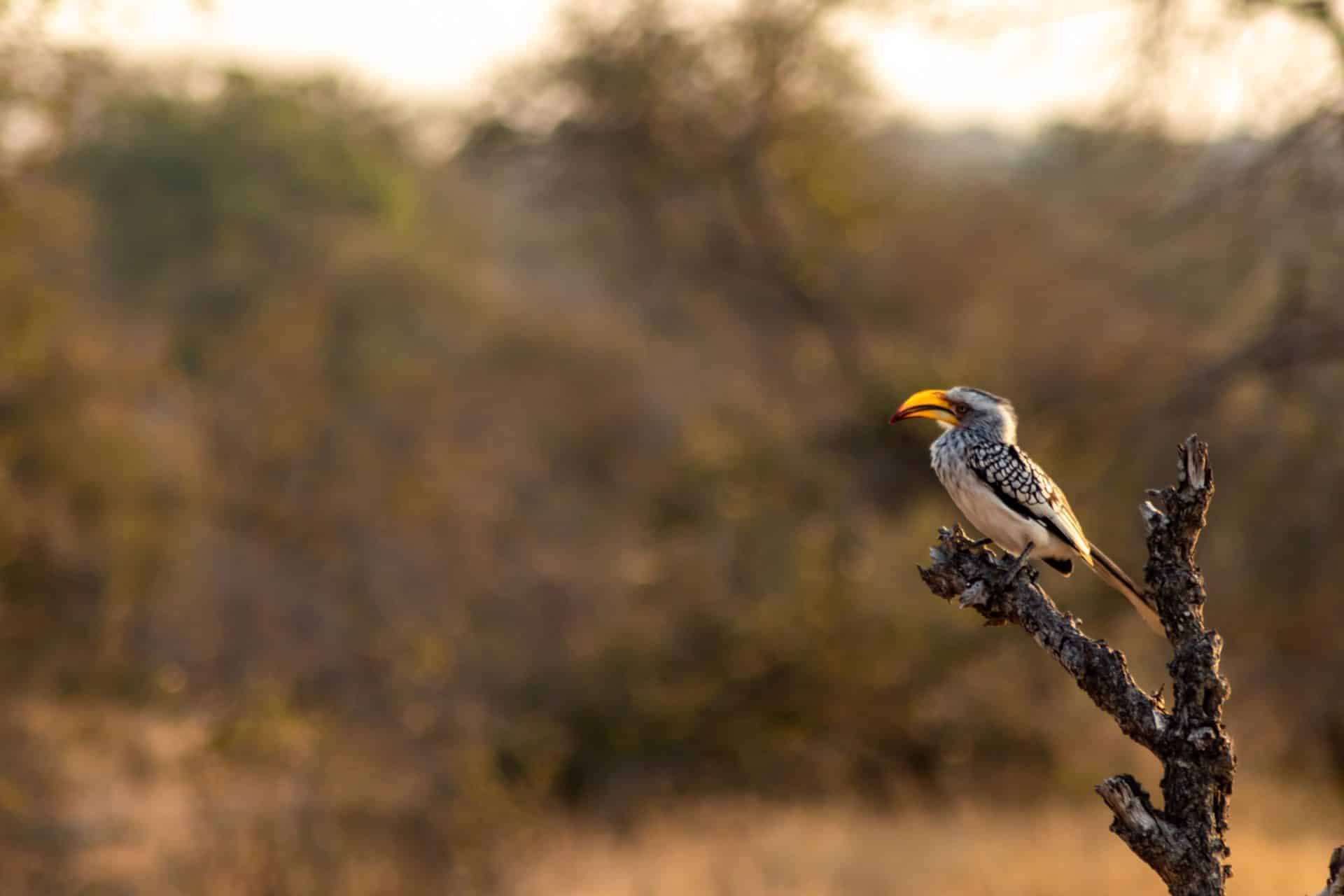
Kruger National Park covers a wide array of ecosystems. With numerous rivers coursing in and out of its borders, wildlife is drawn to the lush, fertile region, and the diversity of landscapes provides home for an equally diverse collective of creatures.
The park is, in many regards, the quintessential safari experience. For those whose bucket lists feature ‘African safari’ within the top five items, Kruger National Park provides a bold and resounding checkmark. Accessible, convenient and with a gamut of accommodation options and standards, it provides a more affordable option to many.
There is, however, also a wonderful amount of luxury and exclusivity to be found in the region, benefiting from the park’s infrastructure, conservation and wildlife population, but secluded or separated from the greater park, to create the ultimate in elite safari experiences.
Kruger and its inhabitants benefit greatly from the park’s exceptional repute, and as its guests, we too benefit greatly, making for a long and enticing list of reasons to visit Kruger National Park. Here are some of our favourites:
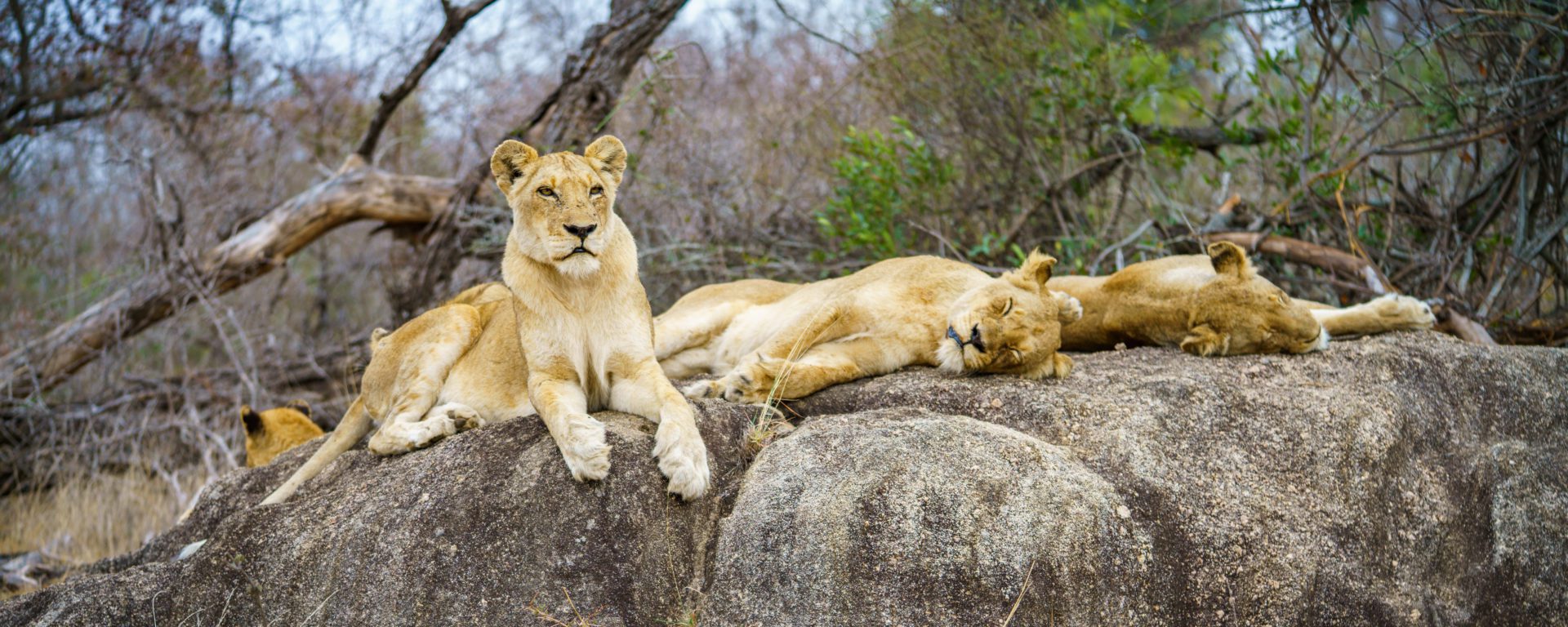
The Inhabitants
Kruger National Park is one of the best destinations to witness the Big 5, and plays home to Africa’s largest combined population of white and black rhinos – over 95 percent of the continent’s total. Your chance of completing your Big 5 treasure hunt is all but guaranteed, fulfilling the big hitters of many safari-goers’ wishes, but there are many more mammals – almost 150 – to be found within the Kruger.
Cheetah, giraffe and painted dogs are amongst the more recognised park inhabitants, but with a little luck and an expert guide, you may also discover some of Kruger’s rare celebrities.
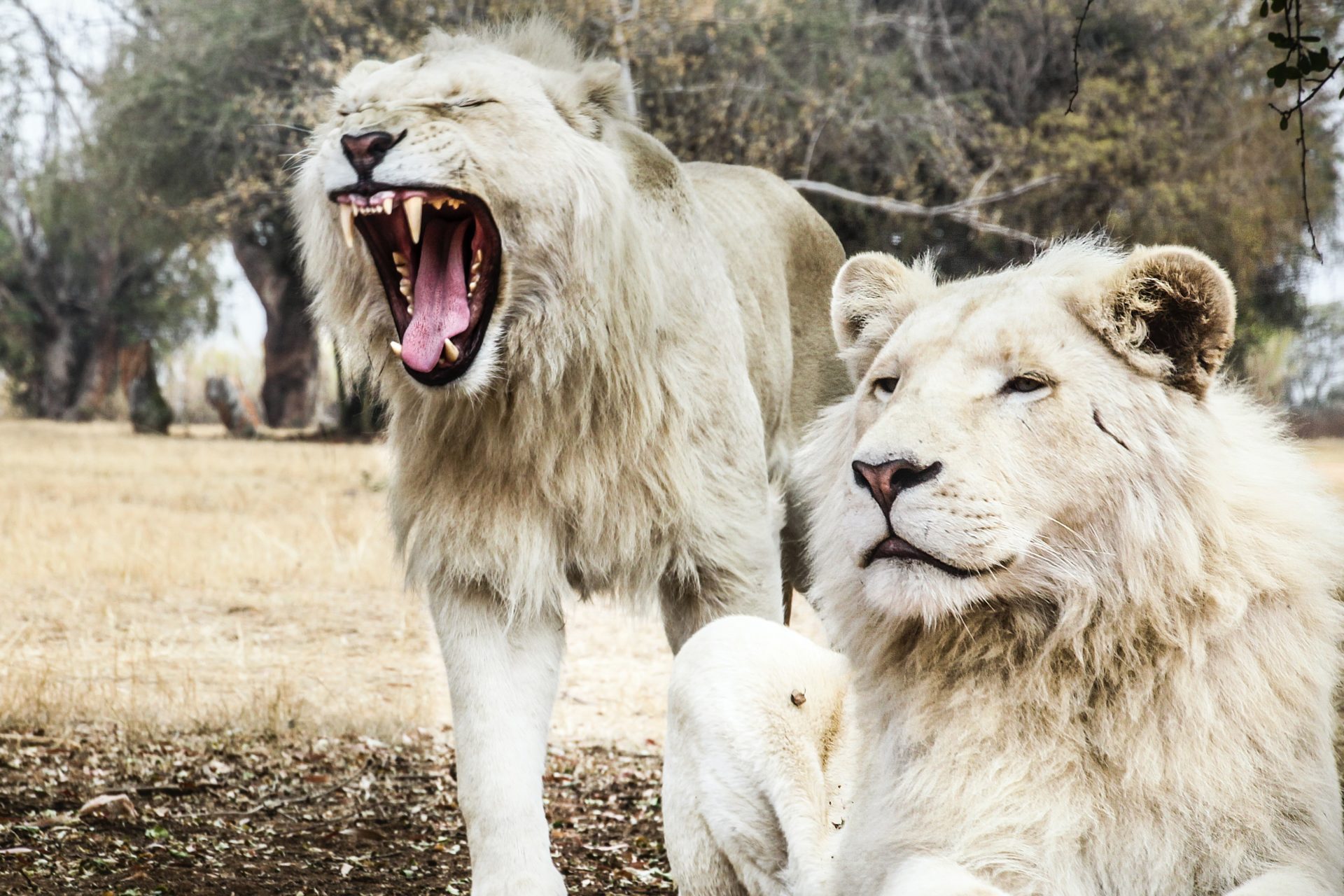
White lion are often assumed to be albino, but gain their pallid colour and blue eyes from a recessive gene. Only a handful exist, but are considered part of the more inclusive lion population, so technically not endangered, and can be found exclusively within Kruger National Park’s Timbavati region, Timbavati poetically translating as ‘the place where the star lions came down’.
The gruff demeanour of honey badgers makes them fairly unpopular to many of the park’s wildlife, but these stocky, burrowing mammals can be found fairly easily in specific regions and are full of personality to their human audience.
A night drive may reveal bat-eared foxes, side-striped jackals and many other creatures not found in the heat of the day.
The Climate
Between November and February, Kruger National Park has a fairly significant wet season. Up to 4.2 inches (106mm) of rain can fall in a month, and the higher temperatures also cause fairly challenging levels of humidity.
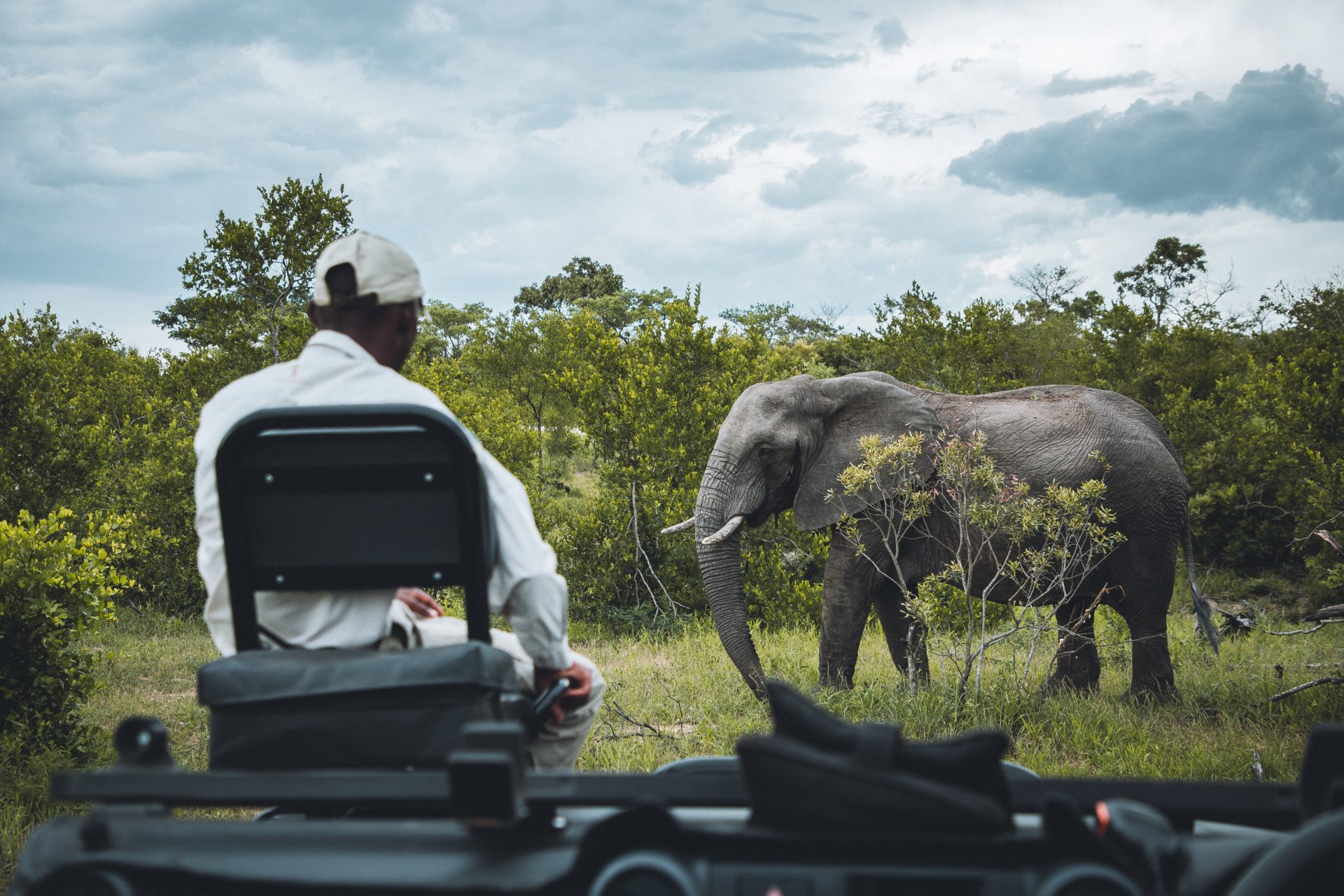
For the rest of the year, temperatures are very pleasant, though evenings can become chilly. This provides a wide window of opportunity for visitors. The seasonal fringe months, March and October, benefit from occasional rains but verdant landscapes, both picturesque and more conducive to wildlife numbers.
Even in the driest months, Kruger National Park’s permanent water sources bring or sustain an abundant wildlife population. Though December January and February are strongly recommended against, the remaining nine months of the year each provide their own collection of benefits.
The Luxury
With popularity comes commerce, and in the case of Kruger, this is highly beneficial. Distinction and acclaim have given rise to a premium level of accommodations, and some of our finest, most luxurious partners lie within the Kruger region.
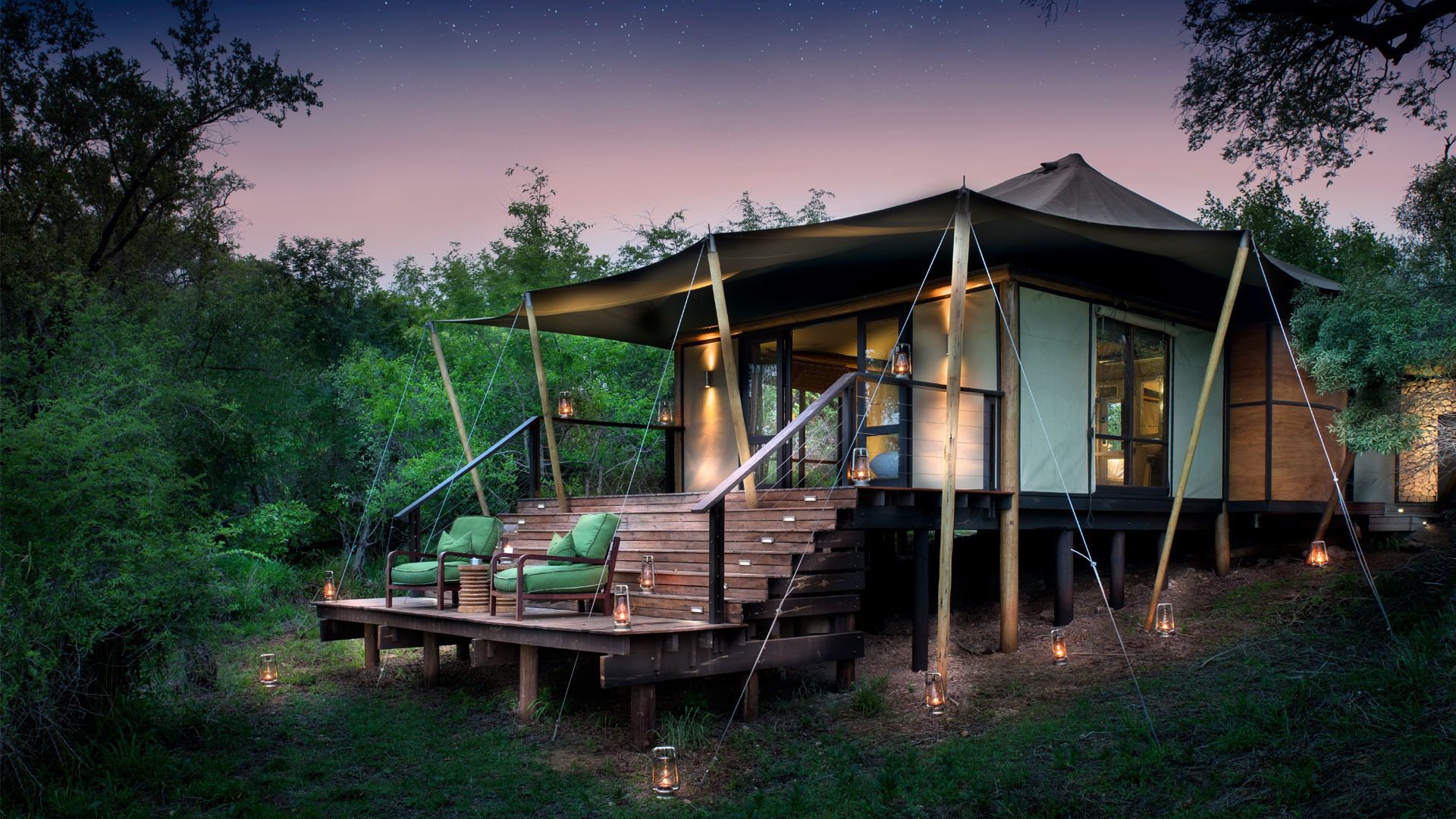
Ngala Game Reserve shares its unfenced borders with Kruger National Park. Nestled on the banks of the Timbavati River lies Ngala Tented Camp, the very epitome of luxury safaris under canvas. The seasonal river provides water for an abundance of animals through the wetter months, the dry, sandy bed a convenient thoroughfare at other times of the year.
Private lodges also abound. Cheetah Plains, Lion Sands and Thornybush all offer a collection of shared and private lodges of premier quality, for families, larger groups and couples. Kruger National Park could be considered as one of the world’s ultimate honeymoon destinations, and several larger lodges also offer unique, divinely intimate opportunities, such as Londolozi’s Granite Suites and the collection of incredible luxurious treehouses found in Lion Sands game reserve.
Contemporary architecture, superior quality and faultless design combine in numerous lodges, villas and camps across the Kruger region, and even the most domesticated, least adventurous of individuals will find boundless comfort and decadence comparable – frequently surpassing – more urban residences.
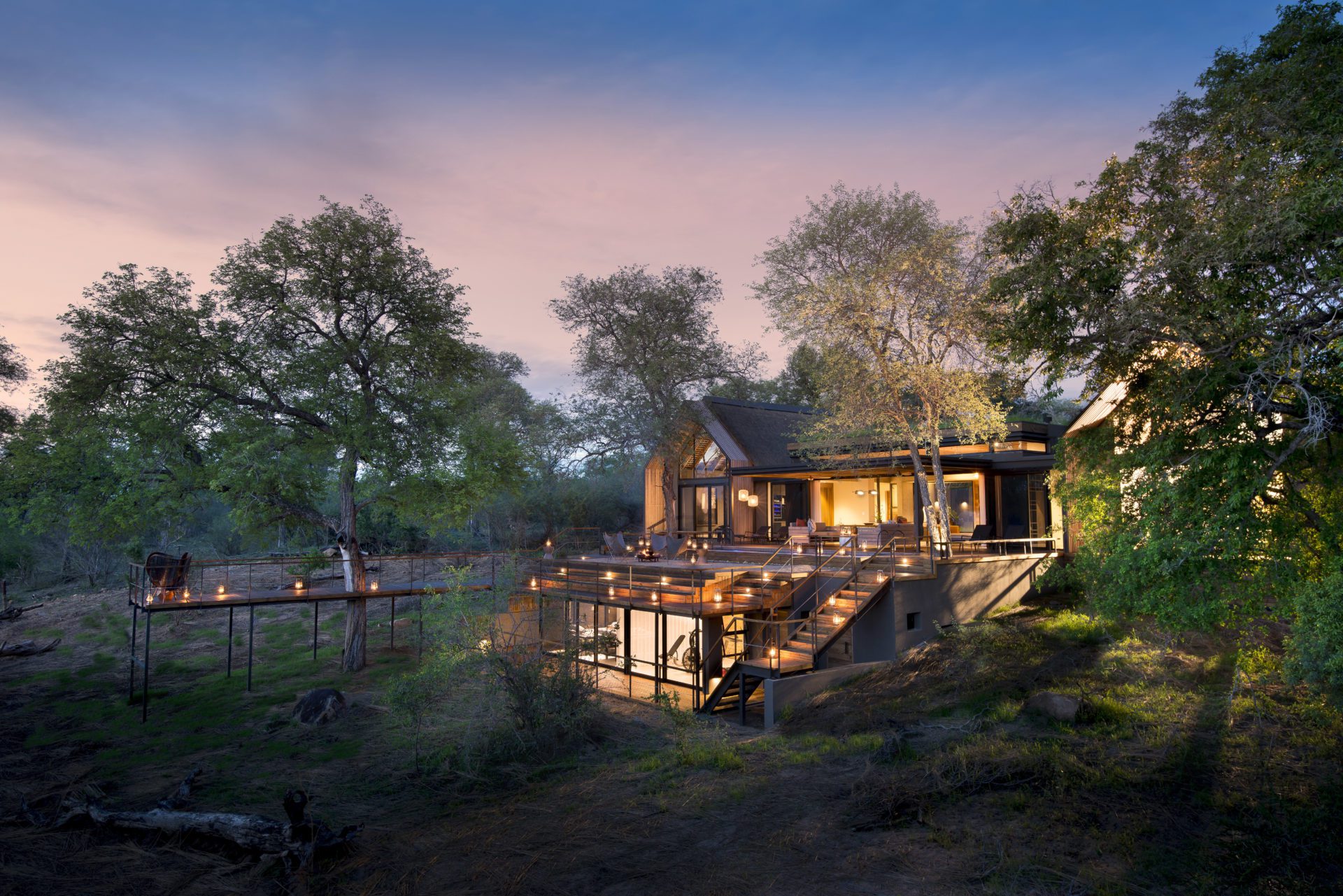
The Service
Even the finest establishment can be compromised by inferior service, but here too, Kruger National Park and its neighbouring reserves excel. English is widely and competently spoken, award-winning cuisine is served by expert chefs, and guides are educated to some of the highest levels anywhere in Africa. This education combines the lifelong heritage lessons of indigenous trackers and tribesmen, as well as a contemporary knowledge of conservation and zoology.
Your experience in Kruger National Park is in the best possible hands. The close-knit network of guides and rangers vastly improves your chances of viewing the more elusive park residents, and your guide will know their movements and read their tell-tale signs to provide you with optimal game-viewing opportunities.
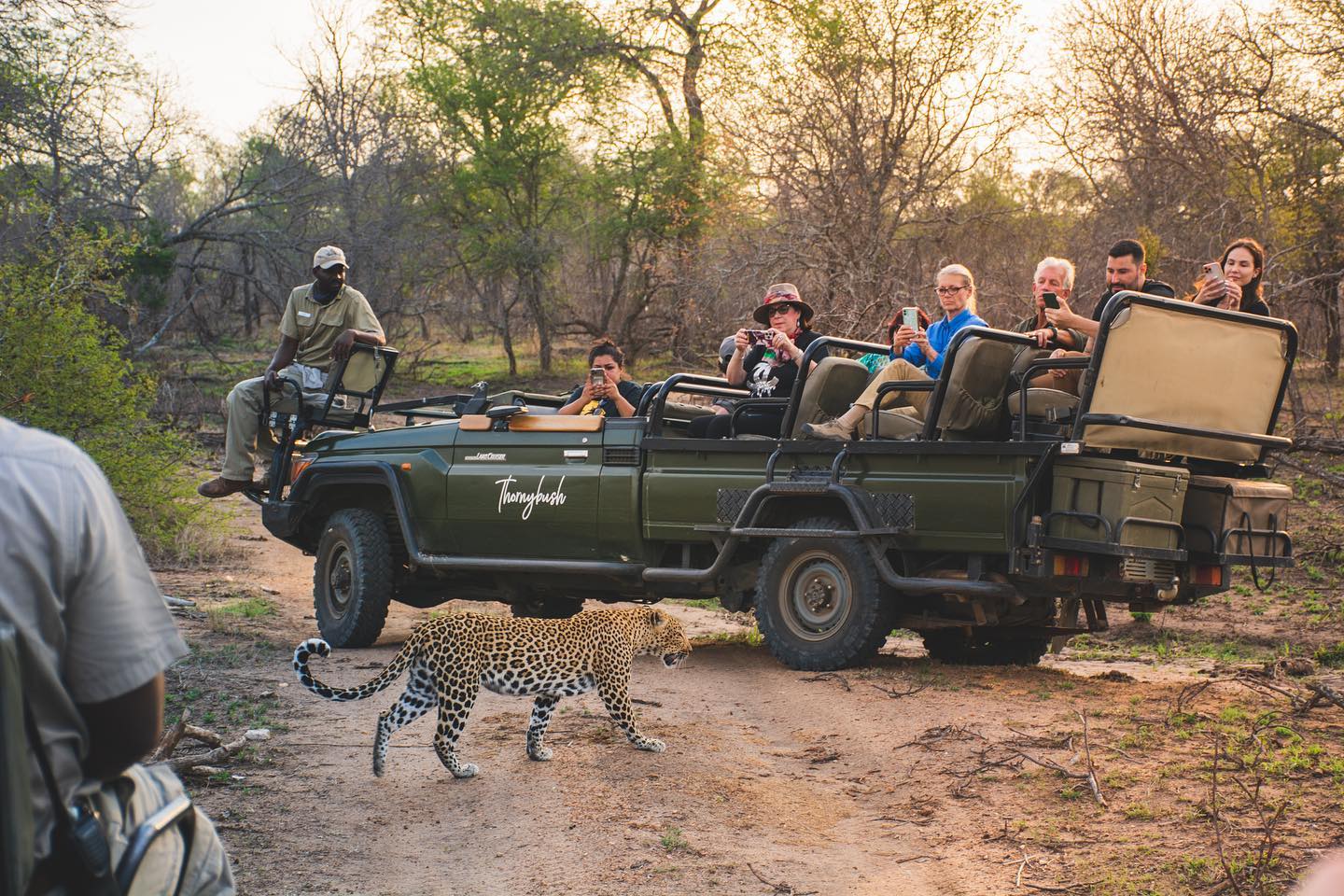
In camp, service is equally as unparalleled. Waitstaff, concierge and butlers all are trained to the highest of industry standards, and your staff will cater to your wishes in a manner on par with, often exceeding, the finest of western establishments.
However, what is rarely received in the contemporary luxury hotels of the world is the acute level of attentiveness abundantly found on safari. Because even the larger lodges host only a very select assemblage, each and every need, request or requirement is attended to personally. Your staff knows your name, your preferences, your dietary requirements and so much more. The unspoken additions – the freshly-drawn bath, the fresh robe, the sundowner prepared just as you like it – all are performed without so much as a nod. ‘Your safari, your way’ is rarely so impeccably embodied as at the luxury lodges of the Kruger.
Conservation in Kruger National Park
As with the standards of accommodation, such popularity affords the park the opportunity to excel in sustainability and conservation. Solar energy is sweeping through the park and its venues, with several private reserves running almost exclusively on renewable energy sources.
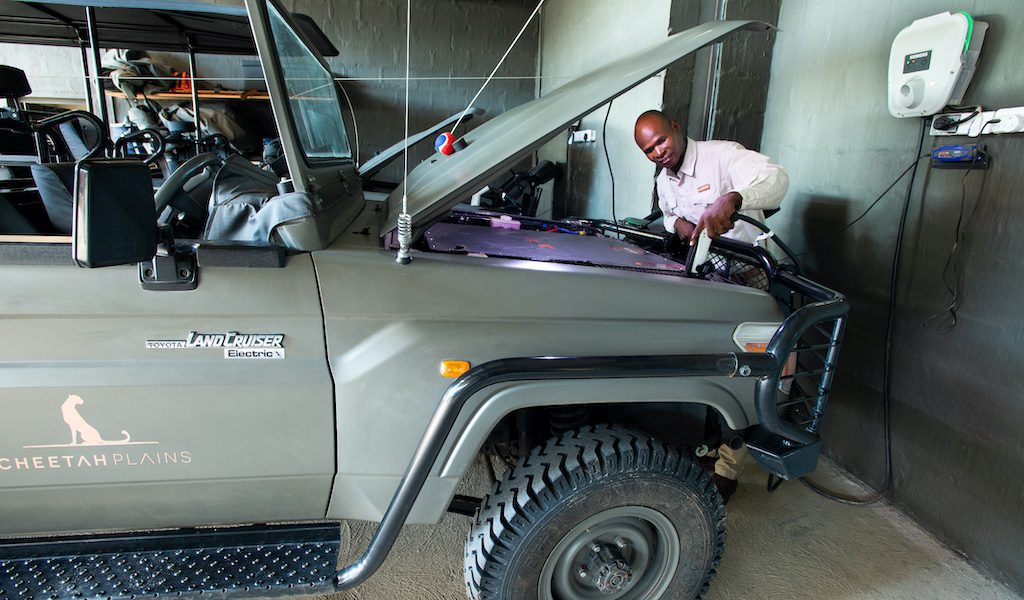
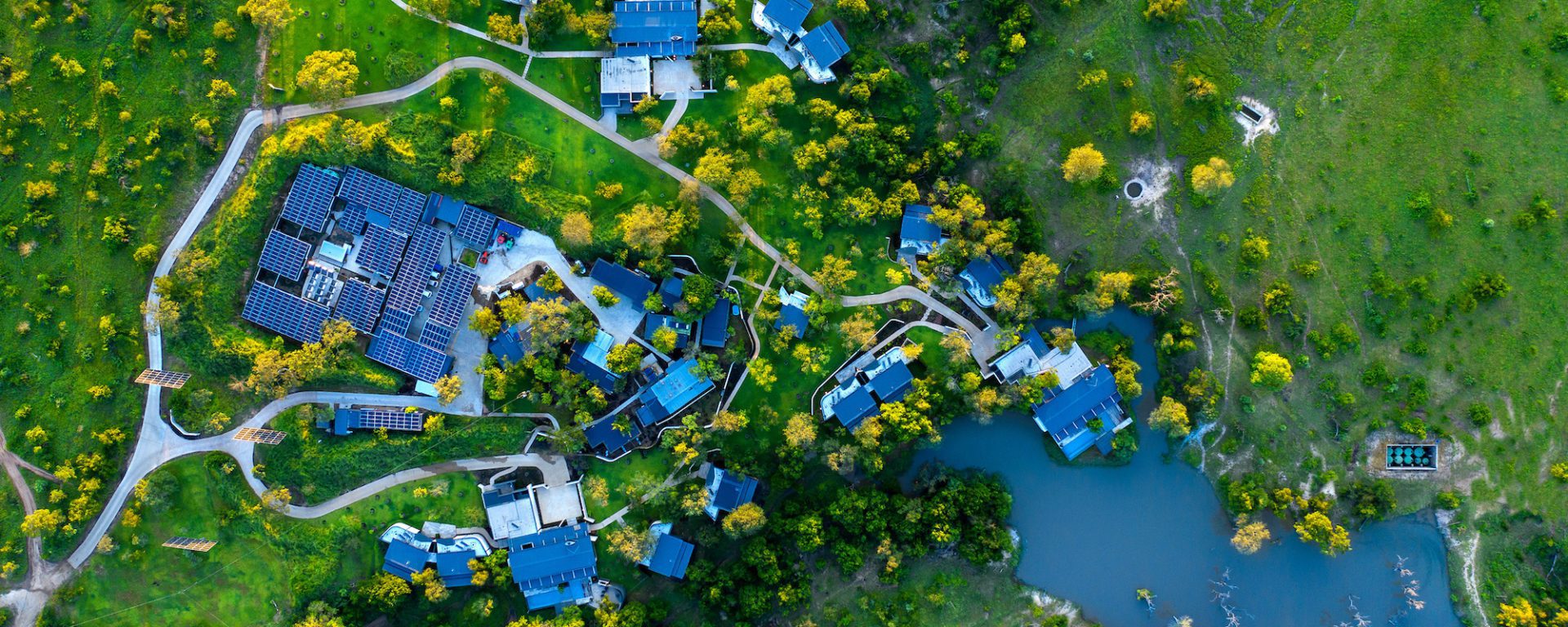
Game vehicles, too, are benefitting from the clean energy boom, and electric 4x4s are becoming increasingly popular. Far quieter than conventional diesel-driven cars, they also allow you to approach wildlife more stealthily, giving you greater opportunity to see animals closer and for longer.
Conservation also has dual benefits. Primarily, of course, is the preservation of some of Africa’s most endangered species. A collective of ranger operations has drastically reduced poaching and, while sadly hunting safaris are still legally allowed, they are carefully monitored and heavily restricted, allowing wildlife to flourish. The flipside of this is that you have a greater chance to see animals, and more of them. Additionally, Kruger National Park conservation is helped greatly by the park’s popularity. Despite its large number of visitors, movement throughout the region is precisely constrained, minimising erosion and habitat damage, and allowing nature plenty of private space to roam. A large portion of park profits, whether directly or indirectly, such as through booking private reserves and camps, is returned to conservation efforts, significantly benefiting wildlife and its continued preservation.
Kruger National Park Walking Safaris
There are a number of places throughout Africa where you can enjoy an exhilarating safari experience on foot. The minutiae of Africa are often missed when in a vehicle, but take to the trails on foot and the more diminutive inhabitants reveal themselves. Insects, reptiles and amphibians make up a huge portion of Kruger life, and you can discover a whole new ecosystem at your feet on a walking safari.
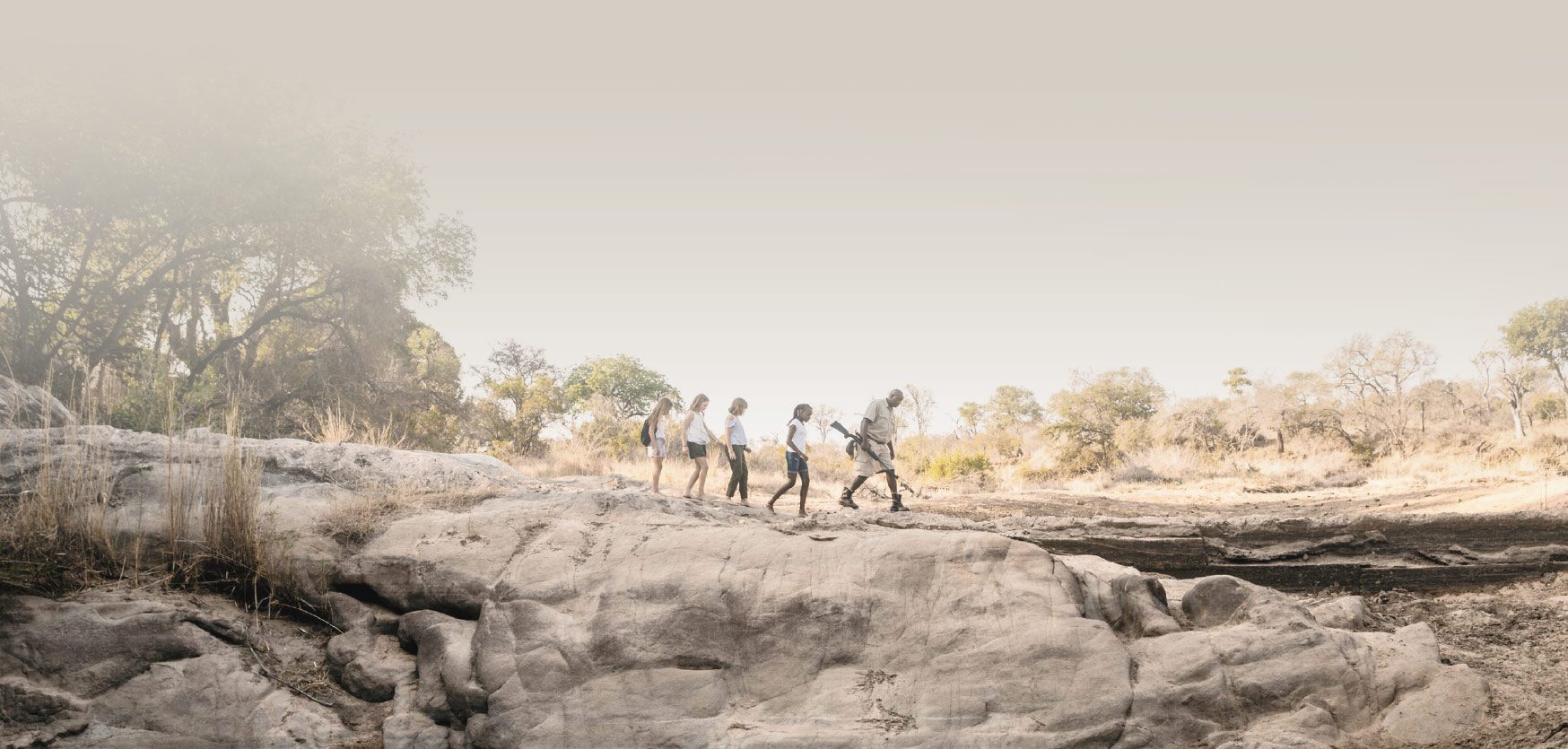
Additionally, you are able to observe nature undisturbed and, though most creatures’ acute hearing will alarm them of your presence far sooner than you might like, your footsteps are infinitely less disruptive than the growling engine of a four-wheel drive.
Guided walks are limited to regions deemed safer, and your guide is always expertly trained in knowing precisely where to go and how to interact with nature of all sizes.
Even to the more conventional guest, Kruger National Park is one of the best park experiences to be found anywhere in Africa, possibly the world. For many visitors, time in the park is time shared, and it isn’t unusual to find traffic jams in the middle of the bushveld. But this isn’t the Kruger of Rothschild’s safaris.
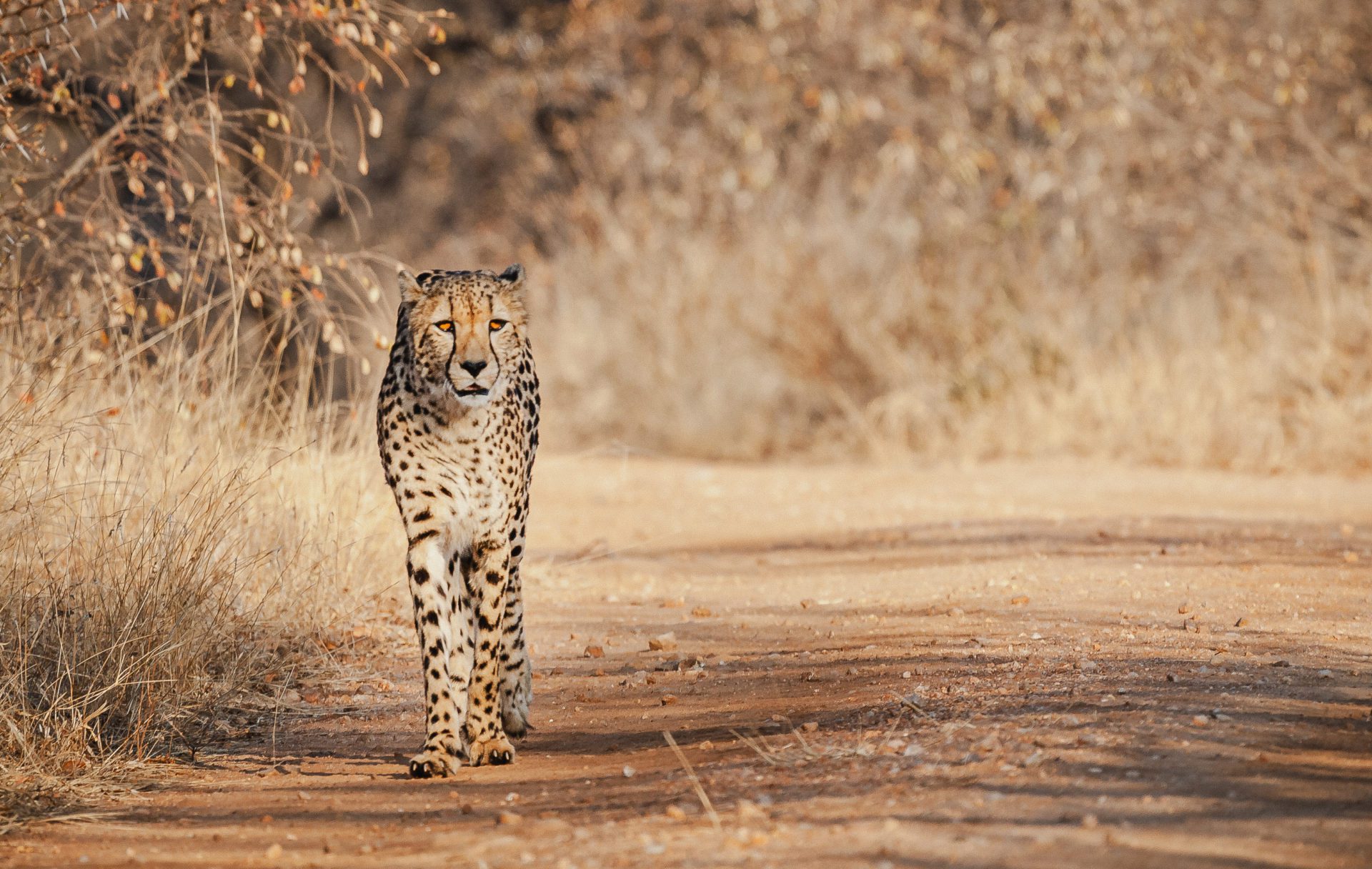
Instead, we have found the intimate enclaves, the remote regions and the secluded stretches of Kruger that allow you to enjoy the park peacefully and in your own time, creating a magical safari with all of the benefits of an abundant, protected national park without the excessive patronage.
If you are searching for the iconic safari experience, Kruger National Park is one of a handful of places that fulfill your wishes with exquisite completeness and, when handcrafted by our Travel Designers, this experience can be for you, and you alone.

